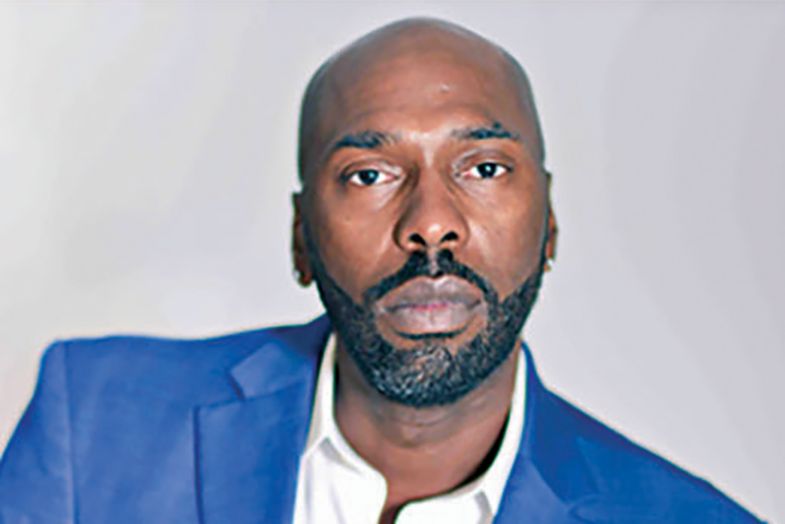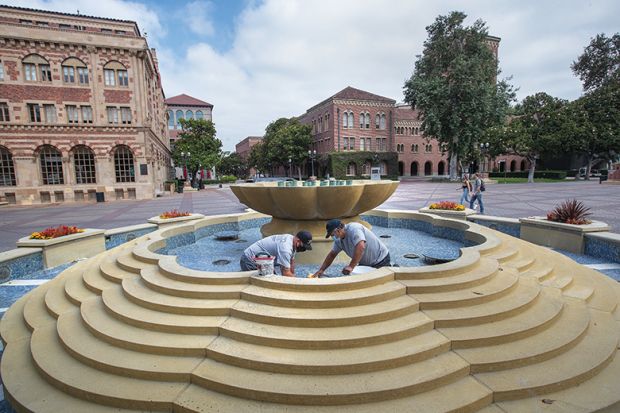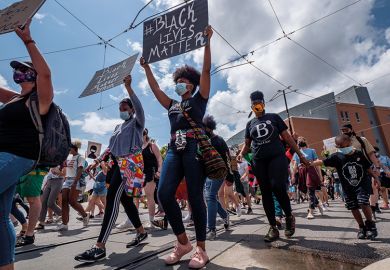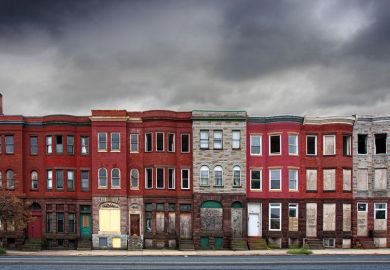Urban US universities are showing important signs of racial awakening. But do they too often let that work stop at their campus boundary?
For a town-gown critique of academia focusing on cities in the post-George Floyd era, Davarian Baldwin (pictured below), a professor of American studies at Connecticut’s Trinity College, visited several leading US institutions – including Johns Hopkins University, the University of Chicago and Arizona State University – and found them too frequently using their immense local clout in ways that may push down as much as help up the low-income minority residents of their surrounding neighbourhoods.
Such practices, Professor Baldwin argued, were a major oversight at a time when universities are taking substantive steps to boost the role of minority students and faculty within their educational missions.
“It is wonderful that schools have begun to engage with a certain kind of racial reckoning in the last year,” he said. “But in many regards, their discussions about this racial reckoning, about racial justice, about antiracism, diversity, equity, inclusion – have stopped at the campus border.”
In his forthcoming book, In the Shadow of the Ivory Tower: How Universities Are Plundering Our Cities, Professor Baldwin offers troubling examples. His narrative begins with the story of the defunct Checkerboard Lounge, a beloved blues nightclub that the University of Chicago allegedly lured from its black-majority neighbourhood to boost an urban renewal effort around its Hyde Park campus.
At Hopkins, he describes the nation’s perennial leader in federal medical research funding paying poverty wages while hounding destitute patients in its own black-majority surroundings. In one instance, he writes, Hopkins joined with the city of Baltimore to force 742 black families from their homes to make room for a biotechnology park.
Professor Baldwin even takes on his own campus, describing Trinity’s long history of walling itself off physically and culturally from the impoverished residents of Hartford.

For the book’s kindest assessment, Professor Baldwin travelled to Canada, where the University of Winnipeg – under Lloyd Axworthy’s presidency between 2004 and 2014 – tore down perimeter gates, opened campus facilities to the public and developed recreational facilities and housing with the needs of its low-income neighbours in mind.
Winnipeg’s work includes helping the struggling All Saints Anglican Church by building on its grounds a 110-unit apartment building with half the spaces set aside for low-income residents.
Back in the US, institutions criticised by Professor Baldwin have suggested he may be overlooking much of the benefit they provide their communities.
“From the university standpoint, we really had good intentions here,” said Sonya Malunda, who helped arrange the Checkerboard Lounge relocation in 2003 while leading civic engagement efforts at the University of Chicago. The Checkerboard was suffering financially, and the owner needed help, Ms Malunda said. The club finally closed in 2015 after the owner died.
A Johns Hopkins spokeswoman highlighted the university’s lobbying to raise Maryland’s state-wide minimum wage and its provision of $1.4 billion (£1 billion) over five years in uncompensated medical care and other community benefits for needy residents. “Johns Hopkins has a deep commitment to the city, its residents and communities,” she said.
A case such as the University of Winnipeg, which is also creating a locally owned food services provider that emphasises hiring those most in need, suggested a vastly higher level of energy and creativity, Professor Baldwin said.
Such initiatives didn’t occur without local pressure. But, he said, “what they’re doing, even if it is in the university interest, is so drastically different than what we’re seeing in the US”.
POSTSCRIPT:
Print headline: Racial equality efforts too often kept on campus
Register to continue
Why register?
- Registration is free and only takes a moment
- Once registered, you can read 3 articles a month
- Sign up for our newsletter
Subscribe
Or subscribe for unlimited access to:
- Unlimited access to news, views, insights & reviews
- Digital editions
- Digital access to THE’s university and college rankings analysis
Already registered or a current subscriber?









